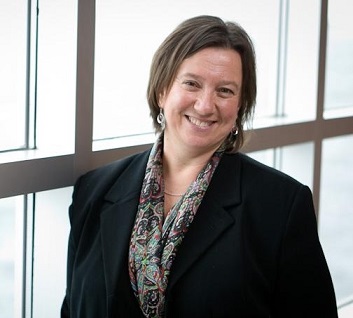I am a student at a designated learning institution in Canada and want to apply for a post-graduation work permit. What do I need to know?
Congratulations! You have applied to one of Canada’s many designated learning institutions, such as Algonquin College or the University of Ottawa, were accepted, and have now started your program of study. Your goal is to transition from student to worker, and eventually become a permanent resident of Canada. You can start planning for this goal even as you begin your first semester of studies. Here are a few things to keep in mind to ensure that you do not run into any problems along the way.
A common pathway for foreign citizens to become permanent residents of Canada is to study at a university or college in Canada, and to then apply for a Post-Graduation Work Permit (‘PGWP’). If your program of study is 2 years or longer, you qualify for a 3-year PGWP. If your program is at least 8 months and less than 2 years, the length of the PGWP generally coincides with the length of the program. Whether you study for one year or two years, however, with 1 year of skilled work experience, the Canadian Experience Class pathway to permanent residence, under the Federal government’s Express Entry system, becomes an option for you.
To ensure that this path remains open to you, you can start by reaching out to your designated learning institution’s international student advisor. This advisor is a good first resource to understanding your obligations as a student, including what you will need to do to eventually be eligible to apply for a PGWP. Another resource is the guidance that Immigration, Refugees and Citizenship Canada (‘IRCC’) posts on its websites.
IRCC is responsible for issuing PGWPs. IRCC lists several PGWP eligibility requirements on its website. IRCC officers generally interpret these requirements strictly, meaning that if you do not meet the requirements, an officer is most likely going to refuse your application, even if you have compelling reasons for why you were unable to meet the eligibility requirements.
One of the eligibility criteria for a PGWP is that students have maintained full-time student status during each academic session of the program or programs of study. Each learning institution has a different definition of what they consider to be full-time student status. If you drop down to studying part-time, or take a semester off, then you will automatically be disqualified from obtaining a PGWP. It can be very stressful for students when they realize that the path that they chose to become a permanent resident is no longer open to them as a result of studying part-time for one semester. It is therefore important that you keep studying on a full-time basis.
There are two exceptions to the requirement to study full-time. In your final academic semester, you may study part-time, and will still be eligible for a PGWP. The second exception is obtaining an authorized leave from your institution. IRCC understands that students sometimes need to take a leave from their studies. If you need to take a semester off, you should reach out to your international student advisor and request authorization to take a break. Each institution has a different policy on how you have to apply for authorization, and what reasons they accept for granting it. Examples of reasons for why authorization may be granted include: medical illness or injury, pregnancy, family emergency, death or serious illness of a family member, change in program or study within the same institution, outside a regularly scheduled break, dismissals or suspensions, and postponed program start dates.
If authorization is granted, it is important that your break is not longer than 150 days from the date that you begin your leave. IRCC considers a student who takes an authorized break of less than 150 days to be ‘actively pursuing their studies’, which is a condition that all students on study permits have. Be sure to obtain and save any documentation related to the authorized leave, as you will need this when you apply for a PGWP.
You should keep in mind that changing your status from full-time student to part-time student status, even if authorized by the learning institution, is generally not considered by IRCC to be an authorized leave. IRCC interprets authorized leave as not taking any classes at all during that period. However, since the IRCC website does not clearly define what ‘leave of studies’ means, the Federal Court of Canada has stated that studying part-time during an authorized leave of absence should not invalidate that period as being an authorized leave of absence. Be aware, however, that studying part-time during an authorized leave of absence opens you up to the risk that the IRCC officer assessing your PGWP application will refuse it, despite what the Federal Court of Canada may have said.
IRCC expects students who do not resume their studies within 150 days to either change their status to a visitor or worker, or, if they cannot do so, to leave Canada.
Another important thing to keep in mind is that you cannot work on or off campus during an authorized leave from your study program, even if your study permit says that you are allowed to work in Canada. To work on or off campus, you must have full-time student status, or be on a regularly scheduled break (e.g., summer holiday).
Many students are not aware of these requirements, which can come at the cost of their dream of becoming a permanent resident of Canada. It is therefore important to review the IRCC guidelines, posted on their website, and to talk to a student advisor, as soon as possible to ensure that the path to permanent residence remains open.
Immigrant Women Services Ottawa
219 Argyle Avenue, Suite 400
Ottawa, Ontario
K2P 2H4
Tel: 613-729-3145
Fax: 613-729-9308







